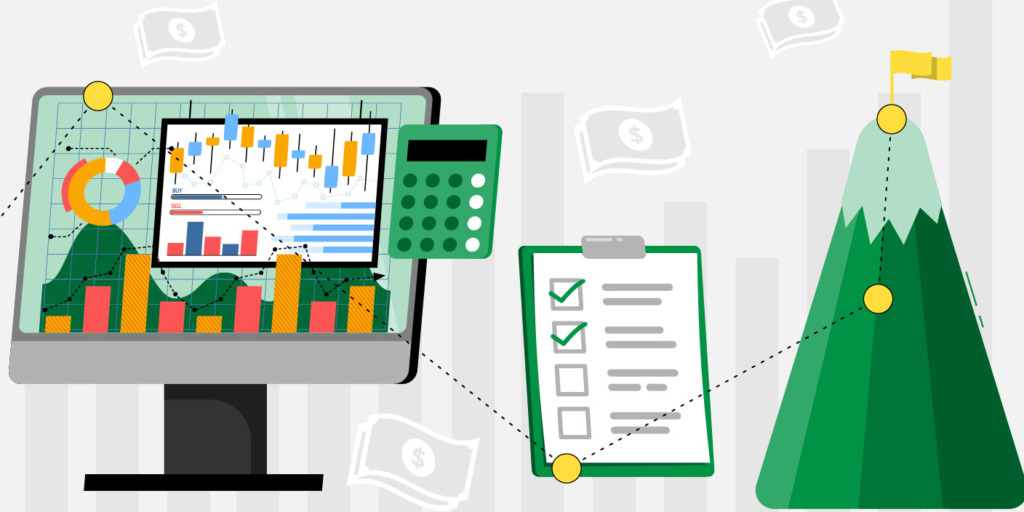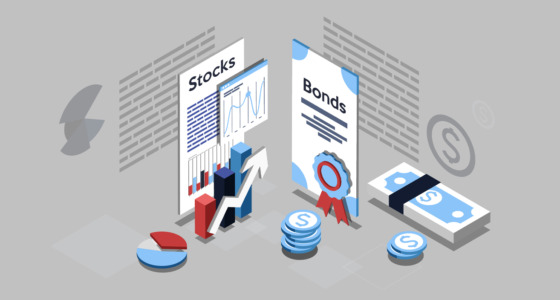

Many traders are looking for guidance and rules to help them succeed. And while trading success can’t be guaranteed, there are some principles that most professional traders follow.
Let’s take gold, for example. Gold has been a safe-haven asset for many traders. Fun fact: there was so much gold discovered during the California Gold Rush in 1848-1855 that some speculators paid more for water than they received for gold. Since then, its price has stabilized and is considered a good hedge against the risk of inflation.
Speaking of gold and speculators, there are a few golden rules of trading you must follow:
1. Write down your trading plan

Writing things down not only helps you remember them but also keeps you more focused. It’s an invaluable exercise for clarifying your ideas, needs, and goals, and understanding the amount of time, funds, and resources you’ll need along the way. You’ll lay out the big things (your long-term milestones) and the details (the exact steps you’ll take in trading).
Another benefit of writing down your rules of trading is that you can easily adjust them and track the changes. Link it up with your trading journal so that you can analyze both documents side by side and gauge the weak points in your plan.
2. Master one tool at a time
There are so many charting tools, indicators, strategies, assets, and markets to learn about that you’ll have to practice single-tasking. Otherwise, you’ll do a bad job (i.e., fail at learning how to use the new tool properly) or get overwhelmed.
When you begin practicing a new tool, it’ll take a conscious effort to remember what it is and how it works. With time, it’ll become easier and the new habit will turn into a normal routine.
Trading already requires you to store so much information in your mind. You don’t want to overstretch yourself any more than you need to.
3. Listen to the charts, not the crowd

“We simply attempt to be fearful when others are greedy and to be greedy only when others are fearful.”
Warren Buffet
The herd mentality is your worst enemy. You might like the comfort of following the crowd because you don’t need to analyze the market and choose the next move yourself. But at the end of the day, you are the one responsible for the results, whether it’s a profit or a loss.
You wouldn’t walk out into the street without looking both ways, right? Then you shouldn’t invest your capital without some individual decision-making.

4. Don’t get attached to your assets
The rules of a trader don’t forbid you from caring about your portfolio and its value. But don’t cross the line into emotional trading territory—be prepared to get rid of your assets at any given time without it hurting your feelings.
If you can’t seem to break the habit of getting emotionally attached to your assets, you may need to change your trading approach entirely. It’s possible that you’re buying assets for the wrong reasons (e.g., buying a company stock because you like the CEO), you’re investing too much, or you don’t know your risk tolerance.
5. Don’t try to break even

You want to make your trades winners. But does it mean you won’t tolerate any losses, sell losing assets, or continue making trades until you break even? Well, it shouldn’t be like that.
There is a cognitive bias called loss aversion – the pain of losing is greater than the pleasure of gaining, encapsulated in the expression “losses loom larger than gains.” This bias can send you down the wrong path of trying to avoid losses rather than minimize them.
Don’t be afraid to admit that you’ve made a judgment error. It’s better for you to just have to bite the bullet, realize your capital losses, and move on.
6. Don’t make excuses
In some ways, excuses make mistakes seem more acceptable. Consider this: if you have a list of excuses prepared, you will be tempted to fall back on any of them every time a trade goes wrong. But if you don’t have your list, you’ll be forced to conduct error analysis sessions and actively learn from bad trades.
Don’t come up with reasons why you didn’t or won’t succeed. Or train yourself to look at these reasons as stepping stones for better trades. If you were too tired, fix your sleep schedule; if the market is too complicated, trade another asset that you understand better.
7. Step away after big wins or big losses
After a big win, confidence can be high; after a big loss, confidence can be low. And both states of mind are not right for trading. It can lead to all kinds of trading mistakes:
- Holding on to your positions for too long or getting out too quickly
- Getting into more trades than you should or missing opportunities out of fear of losing
- Increasing your trade sizes (and risk) or buying too little to generate any meaningful results
This concludes the list of basic rules of trading that you need to follow at any stage of your career. Two final pieces of advice before you go away: stay motivated and set realistic goals!









